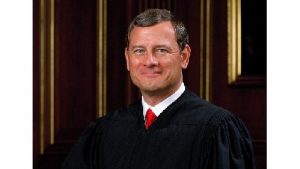
“I always got a lump in my throat whenever I walked up those marble steps to argue a case,” he said in 2005, the day he was nominated to the Supreme Court, “and I don’t think it was just from the nerves.”
Since then, he has nevertheless lived out some expectations we would have for a conservatively minded judge. In 2005 he voted against abortion rights and school integration plans and campaign finance regulation. It seems his judgment often falls within party lines, but that he has a conscience that transcends party norms and is able to look at cases objectively — something desirable, of course, in a judge.
This fall, he is expected to let his conservative colors shine even more, as he is called to rule on issues of the constitutionality of a University of Texas campus affirmative action program. He has previously said that “The way to stop discriminating on the bases of race is to stop discriminating on the basis of race,” implying affirmative action was a poor way to go about the goal.
He will also be voting on a case that tests the 1965 Voting Rights Act, which mandates that there must be federal approval before altering district lines, ballot requirement, and other assurances that minority voters aren’t discriminated against.
It is uncertain whether the conservative judge will surprise us again — but if he did, it wouldn’t be too much of a surprise.




































